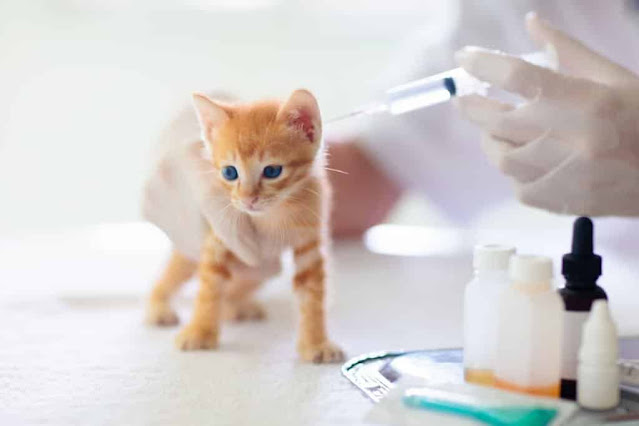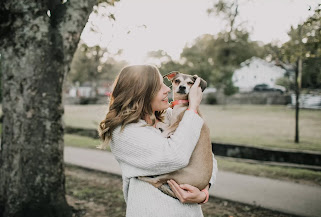Does My Indoor Cat Need Vaccines? Why and when to do it?
We understand that it could be tempting to avoid vaccines that indoor cat owners can skip however there are plenty of reasons to get your cat vaccinations even if they are indoors. Our Veterinary Hospital in Oxford, MS gives you a few reasons your Indoor Cat Need Vaccines, and when you should take them.
Cat Vaccinations
Many serious diseases that affect felines afflict many US cats each year. To prevent your kitten from contracting a potentially fatal illness, it’s crucial to get vaccinations. It’s also crucial to ensure that your kitten receives their first vaccinations by getting regularly scheduled booster shots throughout their life regardless of whether your cat is an indoor cat.
As the name implies, booster shots “boost” your cat’s protection against a range of feline illnesses after the effects of your initial vaccination have worn off. The booster shots for various vaccines may administer according to specific dates. Your vet will inform you of the best time to take your cat in for booster shots.
Why Your Indoor Cat Should Be Vaccinated?
If you own an indoor cat, then you may not aware of the importance of getting vaccines as they rarely venture out. There are numerous reasons why vaccinations are crucial to the security of your cat, even if they remain inside. For instance, some states require that cats that may be older than six months must immunize against the rabies virus. When your cat may receive their vaccinations, your vet will give you an official certificate proving that your cat was vaccination-free as per the requirements.
There are two kinds of vaccinations offered to pets “lifestyle” and “core vaccines’.
Our veterinarians strongly recommend that all cats get their core vaccinations to guard against infectious diseases that they may expose to should they escape the safety of their home, go to a groomer or confine to the boarding house while you’re away.
What are the Core Vaccines for Indoor Cats?
It is vital to ensure that all cats receive essential vaccinations to ensure they live a long, healthy life. Rabies is a disease that kills a lot of mammal species (including humans) each year. The vaccines may be legally required for cats in the majority of states.
Feline Viral Rhinotracheitis and Calicivirus, and Panleukopenia (FVRCP) – Generally described as a” distemper” or “distemper” shot, this combination vaccine shields felines from viral rhinotracheitis and panleukopenia, as well as calicivirus.
Feline herpesvirus type 1 (FHV FHV-1) is a highly contagious viral infection that is the main reason for upper respiratory illnesses. The spread of the virus is through sharing food bowls and litter boxes or inhalation of droplets of a sneeze as well as direct contact. The virus may cause cat infections for the rest of their lives. Thus, Some cats will continue to shed the virus, and a persistent FHV infection can cause eye issues.
Lifestyle Vaccines That May be Beneficial to Your Cat
These vaccines for the lifestyle aren’t required for all cats and are based on the activities your cat is doing frequently. Your veterinarian is the best place to determine which non-core vaccinations your cat must receive. Some of the conditions these lifestyle vaccines protect against include:
Feline immune deficiency (FIV) along with Feline Leukemia (Felv) – The vaccines are effective against viral infections passed on through close contact. They may generally only recommend pets that are outdoors for a long time.
Bordetella the Bordetella bacteria may responsible for Upper respiratory diseases that may transmissible. This vaccine may recommend by your vet if take the cat for grooming or in the kennel.
Chlamydophila felis Chlamydia is an infection caused by bacteria. It can cause severe conjunctivitis. The vaccine for the disease is typically part of the distemper combo vaccine.
When Should Your Kitten Receive Their Shots
The best time for kittens to get their first dose of shots is between about six and eight weeks. Then, your cat will receive a series of shots every three to four weeks until it may around 16 weeks old.
Kitten Vaccination Schedule
The first visit (6 from 6 to 8 weeks)
Examine nutrition and grooming.
Test for feline leukemia in blood
Examen for parasites in the fecal area.
Immunizations for chlamydia and calicivirus as well as rhinotracheitis and panleukopenia.
Visit 2 (12 weeks)
Examine and external inspection for parasites
A vaccine for first-feline leukemia
Second-time vaccinations for rhinotracheitis calicivirus and panleukopenia
First vaccine for feline leukemia
Third visit (follow the advice of your veterinarian)
Rabies vaccine
A second feline leukemia vaccination
When Should Your Cat Receive Their Booster Shot?
The cat vaccination depends on the vaccine that may give, as certain vaccines are effective for up to 3 years, while others could only last for one year. Your vet will advise you when it is time to bring your cat’s adult back to get booster shots.
When Will Your Cat is considered fully Vaccinate?
Before they’ve received all of their vaccines (when they’re between 12-16 weeks old) the kitten isn’t fully vaccine-free. Once all their vaccinations can complete your kitten will be safe from the conditions or diseases that may cover by vaccines.
If your cat likes to take a walk outside, then make sure they’re inside a secure area where they won’t be near other animals.
What are some of the Potential Vaccine Side Effects of Cat Vaccines?
The majority of cats won’t suffer any adverse reactions as a consequence of their shots. If reactions do occur, they’re typically minor and of short time. However, in rare situations, more serious reactions can experience, such as:
Lameness
Diarrhea
Vomiting
A loss of appetite
Swelling or redness around the injection area
Hives
Lethargy severe
Fever
If your cat exhibits any of these symptoms after having received vaccinations, contact your Stockton veterinarian immediately to seek guidance on how to handle the situation.
Are you ready for your cat’s vaccinations? Call the Veterinary Hospital in Oxford for more information about cat vaccinations and to make an appointment.



Comments
Post a Comment